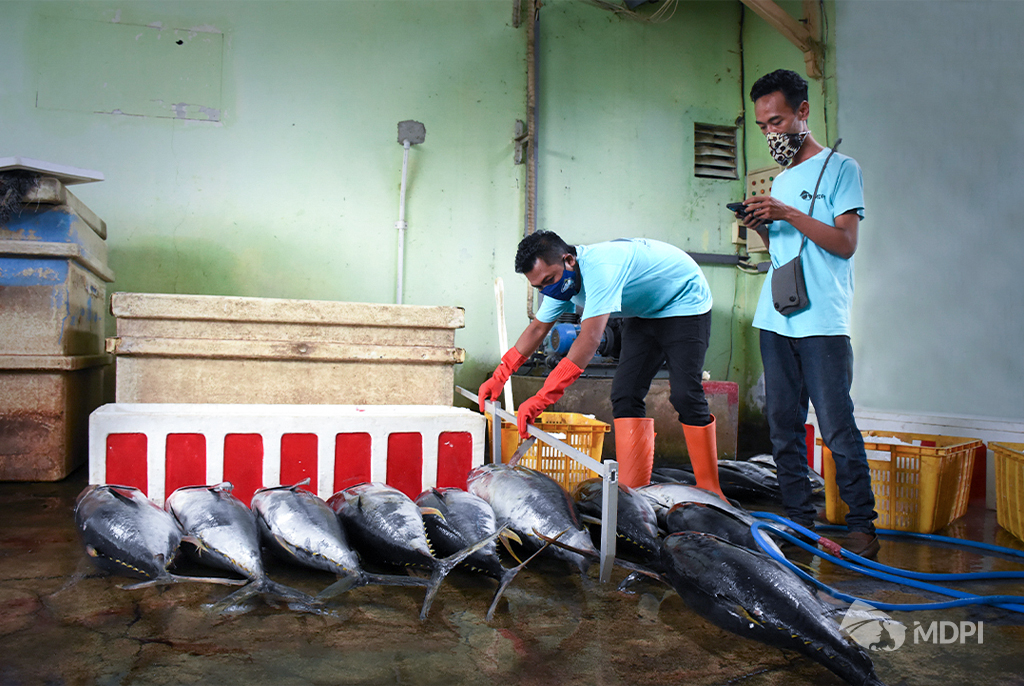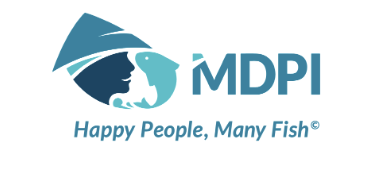18 juillet 2024

Have you ever wondered what a Harvest Strategy is? The concept might seem unfamiliar to many, but imagine playing a board game with your friends and family. The game you are about to play has evolved over time, incorporating innovative changes, updates, and additional features. Before starting, you gather around the kitchen table to read the instructions carefully. The updated game offers different pathways or strategies to win, but you must agree on the rules and choose one pathway for the entire game.
Now, let’s shift our focus to the world of fish, specifically tuna. Visualize hundreds of tuna swimming in our oceans, forming a single stock. These tunas, like any other living organism, undergo a life cycle from birth, growth, breeding, and eventually death. While they have their own growth and survival strategies, they face numerous threats, such as predation, disease, competition, and old age. These threats contribute to what is known as “natural mortality”, in other words: fish dying because of natural events. However, this is not the only concern.
Considering that the global annual consumption of aquatic foods reached approximately 20.2 kg per capita in 20201, aquatic foods serve as a significant protein source ensuring food security for humanity. To meet these resource requirements, thinking about how we fish becomes imperative. Fishing, an ancient human activity that has existed for thousands of years, employs different methods and gears depending on the targeted species. In addition to natural mortality, experts must consider “fishing mortality”, as fish stocks are prone to fishing, posing the greatest threat to commercial and other related fish species caught accidentally.
It can be argued that certain fishing methods have different ecological impacts, with some being more sustainable than others. When we examine a fishery closely, we realize it is far from a trivial activity. Ecological impacts are just one aspect to consider; socioeconomic factors also play vital roles. The fishing industry employs approximately 33 million people worldwide, from processing to preparing or selling, with an estimated economic value of landings of USD 20 billion. Tuna alone accounts for approximately 7% of this total1.
Returning to the game analogy, instead of playing with friends and family, imagine that the players are fishers and other stakeholders of a tropical tuna fishery. They all are competitive and want to win, and they each have their own goals and expectations, creating a complex dynamic. Fishers may aim to catch as much fish as possible in the shortest time, while NGOs may advocate for sustainable fishing practices and train communities, and scientists may have a more objective stance as they inform decision-makers based on data analysis. However, all players are interconnected, and the game becomes more complex when data consistently shows declining tuna trends, potentially leading to a scenario where there are no more tuna to harvest.
An example of a tuna species facing challenges is the yellowfin tuna (Thunnus albacares) in the Indian Ocean, which has been classified as overfished and subject to overfishing since 20182. Overfishing refers to depleting the stock of fish below the level that can sustain maximum yield.
To avoid this worst-case scenario and achieve harmonious and beneficial outcomes for all players, fisheries management becomes crucial. This is where a Harvest Strategy, also known as Management Procedure or Management Strategy, comes into play. Harvest Strategies are used by countries worldwide, including Indonesia, which launched its own Harvest Strategy for Tropical Tuna in Indonesian Archipelagic Waters in June 2023 with MDPI’s active support.
The launch of the Harvest Strategy for Tropical Tuna in Indonesia marks a significant milestone in the nation’s commitment to sustainable fisheries management. The involvement of diverse stakeholders, including MDPI, has played a crucial role in supporting data-driven decision-making and stakeholder engagement. The Harvest Strategy provides a roadmap for responsible fishing practices, balancing ecological, economic, and social objectives. Continued efforts and awareness raising are essential to effectively manage tuna resources, protect marine ecosystems, and support the future of Indonesia’s tuna fisheries and coastal communities.
A Harvest Strategy is a pre-agreed framework based on scientific advice and the best available data. By utilizing data and information about the fishery, experts can simulate different long-term scenarios, taking into account uncertainty and using computer models, to predict how stocks might behave3. This strategy is similar to choosing a pathway before starting the game. Experts can test and compare different scenarios based on fisheries science against agreed-upon management objectives, aiming to prevent stock collapse. This is known as a Management Strategy Evaluation, and is a key component of a Harvest Strategy3. If the available data for a Harvest Strategy is accurate and reliable, it could reduce the need for costly operations like stock assessments.
A Harvest Strategy follows a closed-loop process with different phases and a set of actions prior to its establishment. This includes monitoring and assessing the fishery, adjusting fishing levels based on harvest control rules4 (actions that describe how management measures should be adjusted in response to indicators of stock status), employing specific management measures, and enforcing and monitoring those rules to ensure that stakeholders are compliant. Collaboration among stakeholders is key to successful fisheries management, just like the cooperation among players in a game. Fishers, governments, NGOs, researchers, and other stakeholders must work together as a team to achieve sustainable outcomes. They can all contribute by collecting and sharing data, monitoring the fishery, sharing their expertise, and ensuring compliance with rules.
In conclusion, the Harvest Strategy is a game-changer for sustainable fisheries management. By incorporating scientific advice, data-driven decision-making, and collaboration among stakeholders, we can navigate the complexities of fisheries management and safeguard fish stocks for future generations. Just like in a board game, strategic planning and cooperation are essential for success!

About the Author: Kai Garcia Neefjes (he/him/his) is a Program Associate Specialist at Masyarakat dan Perikanan Indonesia (MDPI), a non-profit organization aspires to empower coastal communities in achieving sustainability by supporting community organization and harnessing market forces. You can contact him at kai.garcia@mdpi.or.id or visit www.mdpi.or.id to learn more about tropical tuna harvest strategy in Indonesia.
References
[1] FAO, The state of World Fisheries and Aquaculture 2022. Towards Blue Transformation. (Rome: FAO, 2022), 51-82,
www.fao.org/3/cc0461en/cc0461en.pdf
[2] Indian Ocean Tuna Commission, 17th Working Party on Tropical Tunas Report. (IOTC, 2015),
www.fao.org/3/bf342e/bf342e.pdf
[3] CSIRO, Key concepts for Harvest Strategies and Management Strategy Evaluation. (CSIRO, n.d.).
[4] “Report of the 2018 joint Tuna RFMO Management Strategy Evaluation working group meeting,” June 13-15, 2018, www.tuna-org.org/Documents/tRFMO_MSE_2018_TEXT_final.pdf